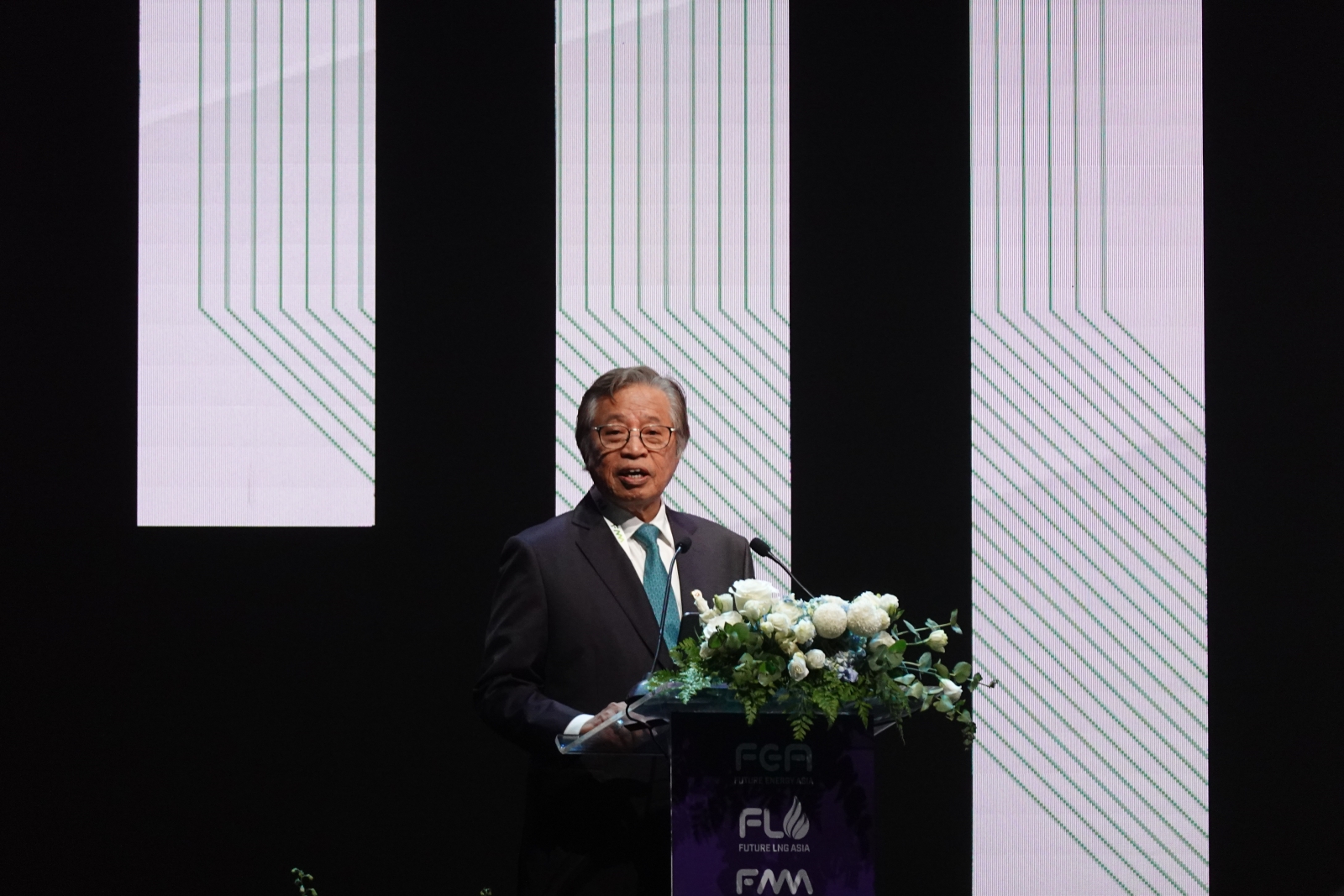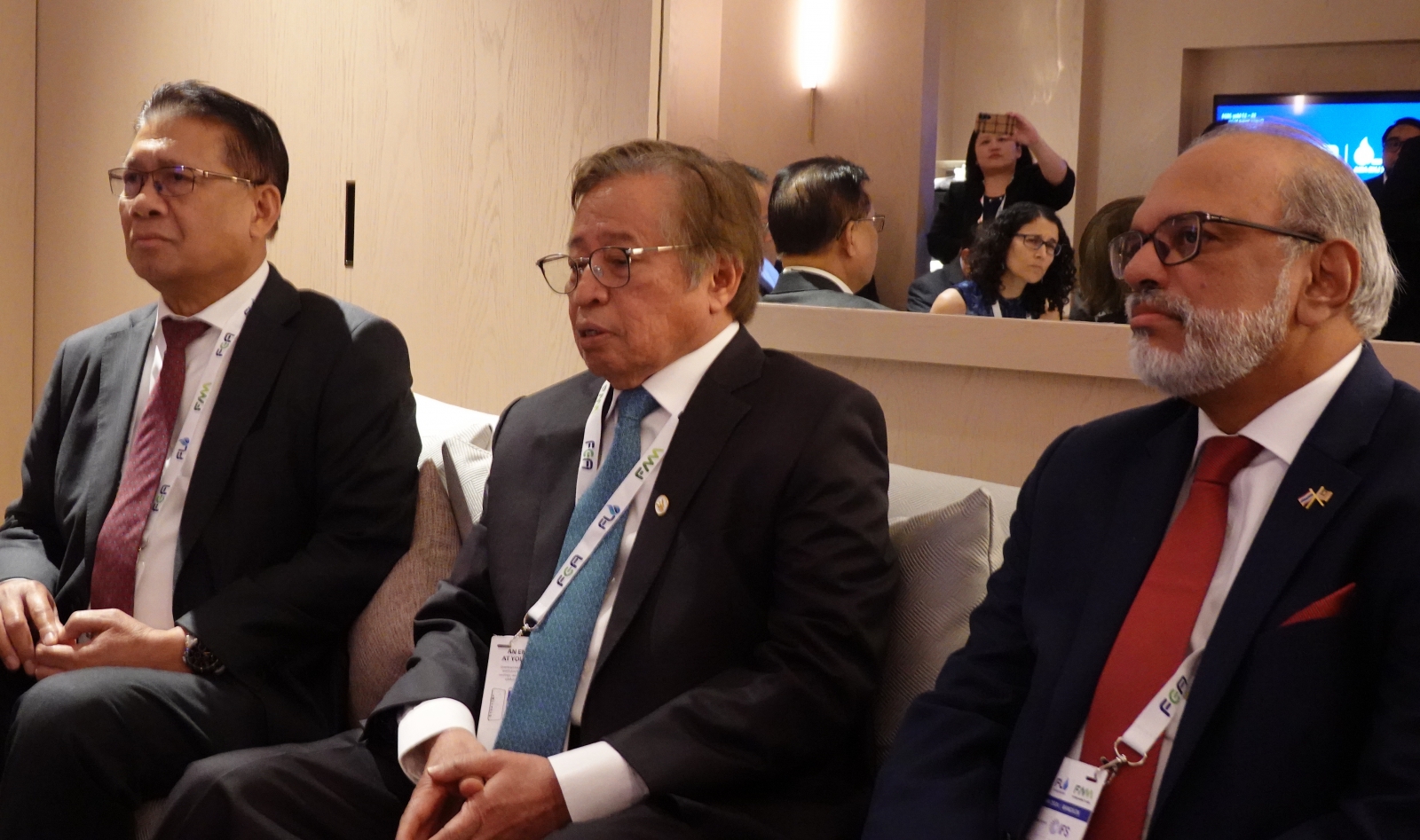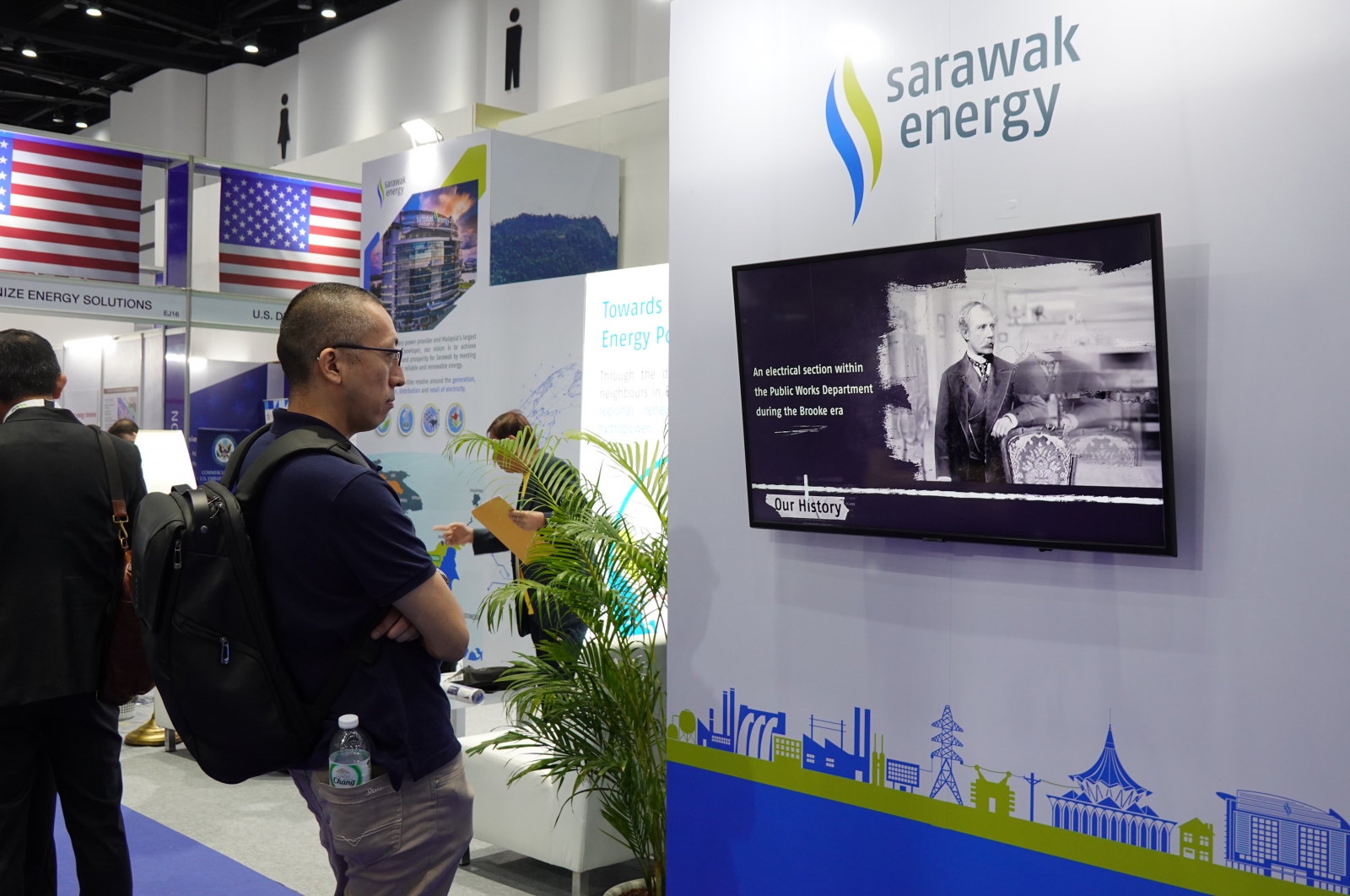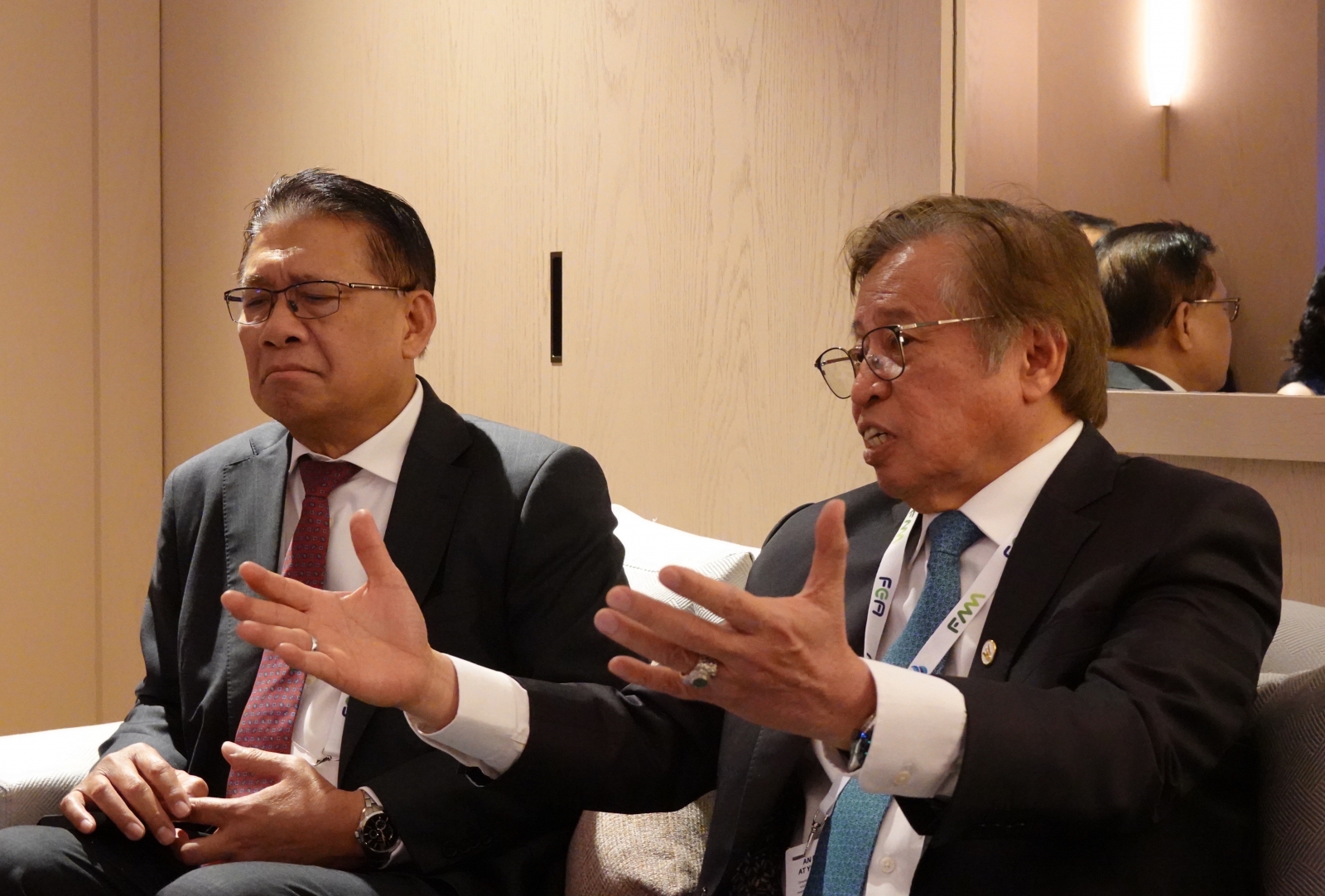Prime Minister Abang Johari of Sarawak State of Malaysia led representatives of Sarawak Energy Berhad and other energy companies to attend the Future Energy Asia 2024 in Bangkok, Thailand on May 17 to showcase their energy transition strategies.
The state is shifting from fossil fuels to renewable energy and accelerating the energy transition in Southeast Asia by selling surplus green electricity to neighboring countries, while also working with international organizations to develop carbon trading regulations.

Abang Johari shares Sarawak's green transition pathway at Future Energy Asia 2024. (Photo: Nana Chen)
Sarawak, the largest state in Malaysia, is located in northwestern Borneo and has abundant natural resources, with 62% forest cover. While Sarawak is rich in traditional energy sources such as oil and gas, it is developing renewable energy and has favorable conditions for hydropower generation, said Johari, adding that the state has launched a number of key measures to promote a green economy while addressing climate change.
Sarawak to follow international standards to develop carbon trading
The measures include the Environment Reduction of Greenhouse Gases Emission Ordinance 2023 and the Land Carbon Storage Rules 2022, aiming to regulate greenhouse gas (GHG) emissions and promote Carbon Capture, Utilization, and Storage (CCUS) technology, while establishing an effective verification system to ensure credibility of carbon credits issued by the state.
Sarawak is not only protecting nature, but also paving the way for sustainable economic growth, as evidenced by increased amendments to the Forest Ordinance 2022 and the Forest Carbon Activity Rules 2023, said Johari.
"These laws can promote carbon market activities, creating new pathways for environmentally conscious businesses while safeguarding our precious forests," he said.

Abang Johari interviewed by Reccessary and other international media (Photo: Nana Chen)
Without specifying the time for launch, Johari said carbon trading is a new area and the state will need to consult international carbon credit verification bodies such as Verra before establishing rules, while following the guidelines of organizations such as the World Bank to align its policies with the UN Sustainable Development Goals (SDGs).
Johari assured that Sarawak's carbon trading will comply with international standards, emphasizing that credibility is a current issue in the carbon market and that legal parameters are required to help reach a consensus in establishing a globally recognized protocol.
Low renewable energy cost favors energy transition
Compared to a decade ago when Sarawak relied on fossil fuels, which generated 90% of its electricity in 2010, the state's energy mix is now dominated by renewable energy, mainly hydropower, reducing the state's carbon intensity by 73% from 2010 to 2022.

Sarawak Energy at Future Energy Asia 2024 (Photo: Nana Chen)
Sarawak's advantage in energy transition lies in the lower cost of renewable energy, which brings positive impacts to domestic industries in Malaysia and facilitates the export of affordable and reliable electricity, according to Johari.
Sarawak Energy launched its first renewable energy certificate (REC) in 2019 and sold more than five million by 2023, with sales 335 times higher than the 15,000 in 2020.
To promote renewable energy, Sarawak's recently amended Electricity Ordinance 2023 institutionalizes the concept of a single electricity buyer, making Sarawak Energy the sole electricity buyer, which will support the state's energy transition and ensure a reliable and sustainable energy supply for the future.
Expanding solar, biomass energy development while promoting regional grid integration
Sarawak's installed renewable energy capacity quadrupled from 1,346 MW in 2010 to 5,745 MW in 2023, expected to reach 10 GW by 2030, which will come from hydro, solar, and biomass sources, and will not only satisfy the state's growing demand for electricity, but also provide surplus for export.
Sarawak launched its first cross-border transmission line with West Kalimantan, Indonesia, in 2016, marking the first step in promoting the greening of Borneo, while exploring hydropower projects in North Kalimantan.
Sarawak is also contributing to regional energy integration through the ASEAN power grid project in partnership with companies such as Sembcorp and SP Group.

Abang Johari offers Singapore green electricity exports in exchange for data center investment. (Photo: Nana Chen)
Sarawak swaps green power for Singapore data center investment
Sarawak and Singapore are seeking power interconnection, with Sarawak proposing green electricity exports in exchange for investments in data centers, which the Malaysian prime minister has supported.
The subsea power cable connecting the two nations will be built by Singapore, and Sarawak will export 1,000 MW of renewable energy to Singapore, with the project expected to be completed by 2032.
The undersea cable will run 720 kilometers from near Kuching, the capital of Sarawak, to Changi, with 80% of the cable passing through Indonesian waters. According to Johari, Indonesia is willing to open a public corridor between Singapore and Sarawak.
He said that Singapore lacks energy and land, while Sarawak can meet both aspects. Singapore only needs to invest in Kuching, where Singaporean companies can retain ownership of their investments, while Sarawak can increase employment and promote local technology research and development. Both sides can benefit from this arrangement.




